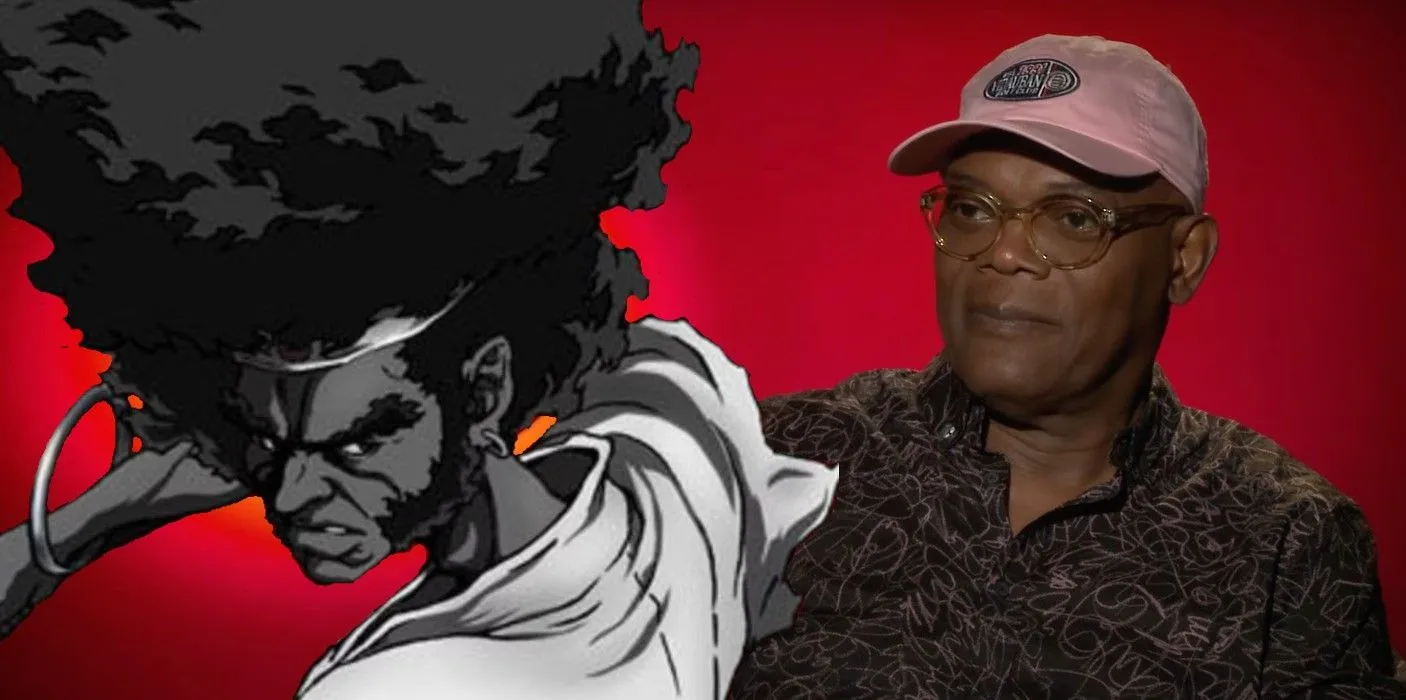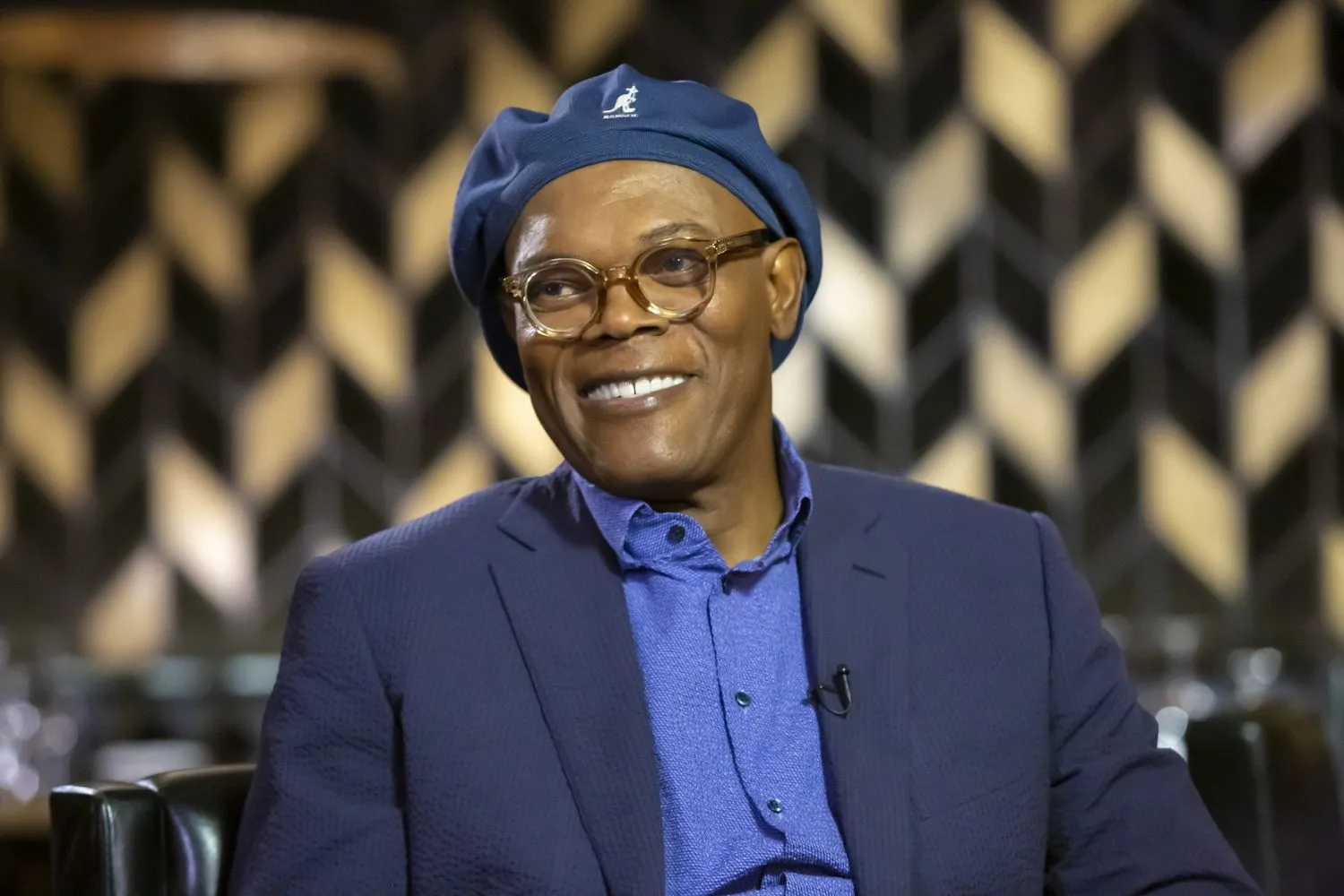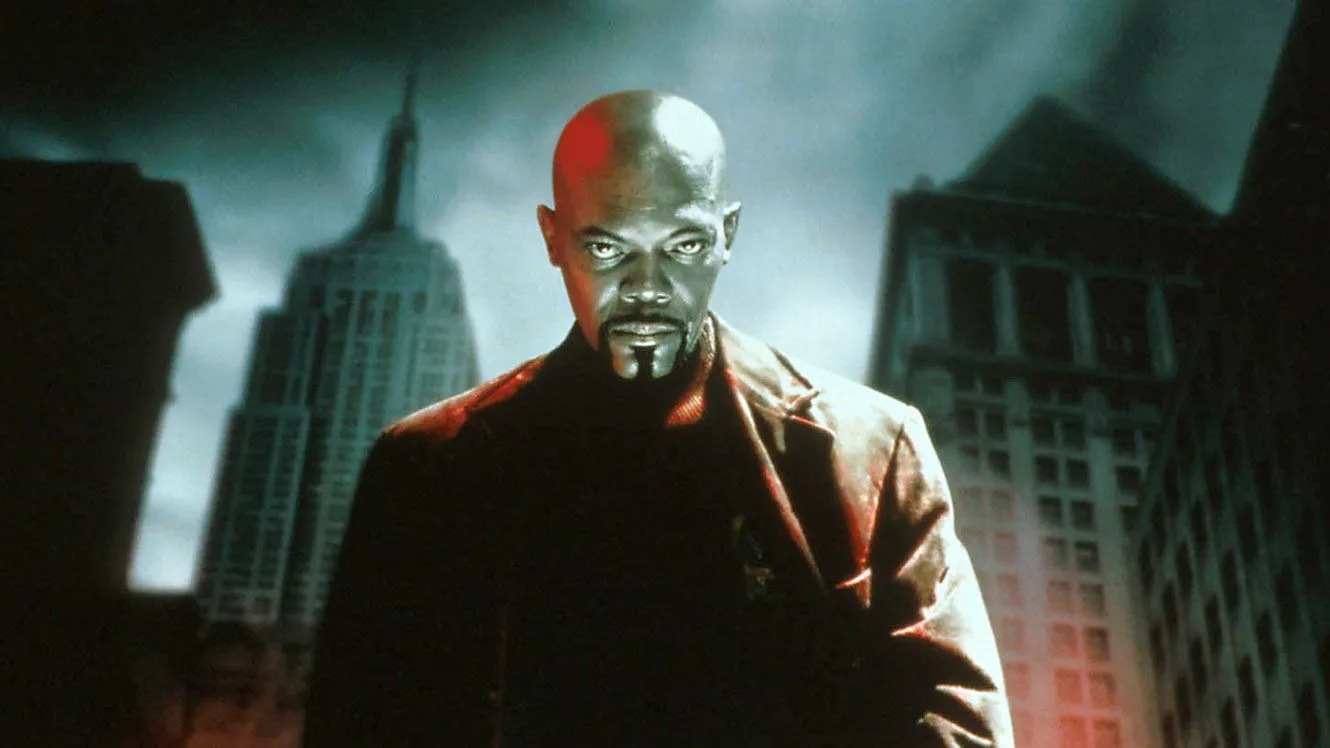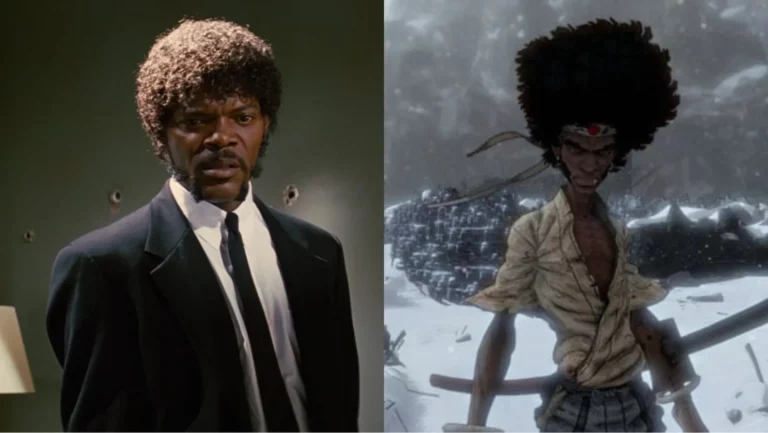In the eclectic world of anime, where Japanese traditions mesh with global influences, few series have drawn as distinct a line from East to West as “Afro Samurai.” This groundbreaking series began humbly, sketched on Kleenex boxes by creator Takashi Okazaki, inspired by his passion for hip-hop and soul music. These early doodles, which infused African-American culture with traditional samurai aesthetics, caught the eye of Hollywood powerhouse Samuel L. Jackson, leading to a partnership that would propel “Afro Samurai” to international fame.

The Birth of a Cultural Fusion
“Afro Samurai” emerged from Okazaki’s imagination as a blend of his love for American media and Japanese manga. What started as a series of casual doodles eventually found its structure in the dojinshi (self-published) scene, gaining initial traction in the independent art magazine Nou Nou Hau. Okazaki’s creation was a bold fusion of East and West, standing out in a market flooded with typical manga fare by marrying samurai culture with futuristic cyberpunk elements and a striking visual style.
As Okazaki crafted a world where traditional and modern collided, his sketches laid the foundation for a narrative that was both unique and visually captivating. This distinctive style helped “Afro Samurai” quickly transition from underground art to a manga series that caught the attention of Samuel L. Jackson, one of Hollywood’s most iconic actors.
Samuel L. Jackson’s Transformative Role
Jackson’s discovery of the “Afro Samurai” pilot was serendipitous. Moved by the representation of African-Americans in an anime format—a rarity in Japan—he reached out to join the project. Jackson not only lent his voice to the titular character, Afro, but also brought a dual nature to the role that resonated with audiences worldwide. His involvement provided the series with unprecedented exposure and helped cement its place as a high-profile, culturally significant work.
Jackson’s participation was more than just a celebrity endorsement; it was a passionate contribution to a project that showcased diversity and cultural integration. His portrayal added depth to Afro, enhancing the character’s impact and leaving a lasting imprint on the anime landscape. Jackson himself has been vocal about the personal significance of this role, famously referring to it as his “best project,” a notable declaration considering his extensive filmography.

A Legacy of Innovation and Influence
The success of “Afro Samurai” is a testament to the power of cultural hybridity in media. The series not only highlights the influence of Western culture on Japanese anime but also illustrates how traditional narratives can be transformed through diverse, global perspectives. With a soundtrack composed by RZA from the Wu-Tang Clan, the anime blends samurai tradition with hip-hop beats, creating a sensory experience that resonates with a broad audience.
The impact of “Afro Samurai” extends beyond its auditory and visual appeal; it represents a shift in how anime is perceived and produced, showcasing the potential for anime to serve as a platform for cultural dialogue and representation. As the series continues to captivate fans around the world, its legacy is a reminder of the dynamic possibilities when diverse cultural elements are woven into the fabric of storytelling.

In bridging diverse worlds, “Afro Samurai” stands as a beacon of innovation in anime, proving that creative origins—no matter how humble—can evolve into influential cultural phenomena. This series not only changed the landscape of anime but also demonstrated the universal appeal of inclusive storytelling, bolstered by the vision of its creators and the voice of Samuel L. Jackson.
